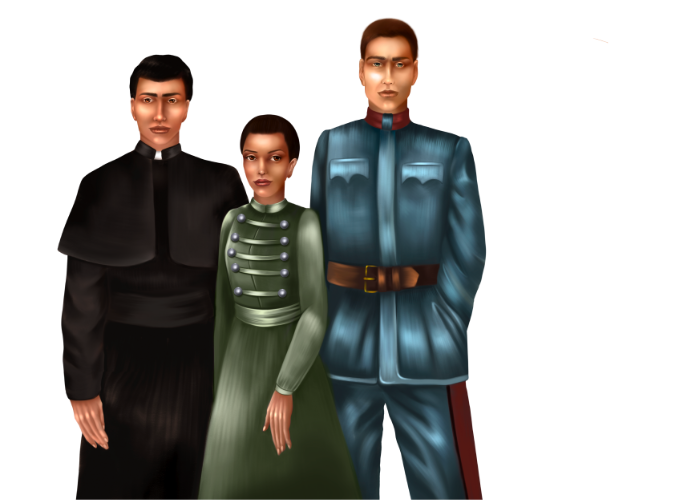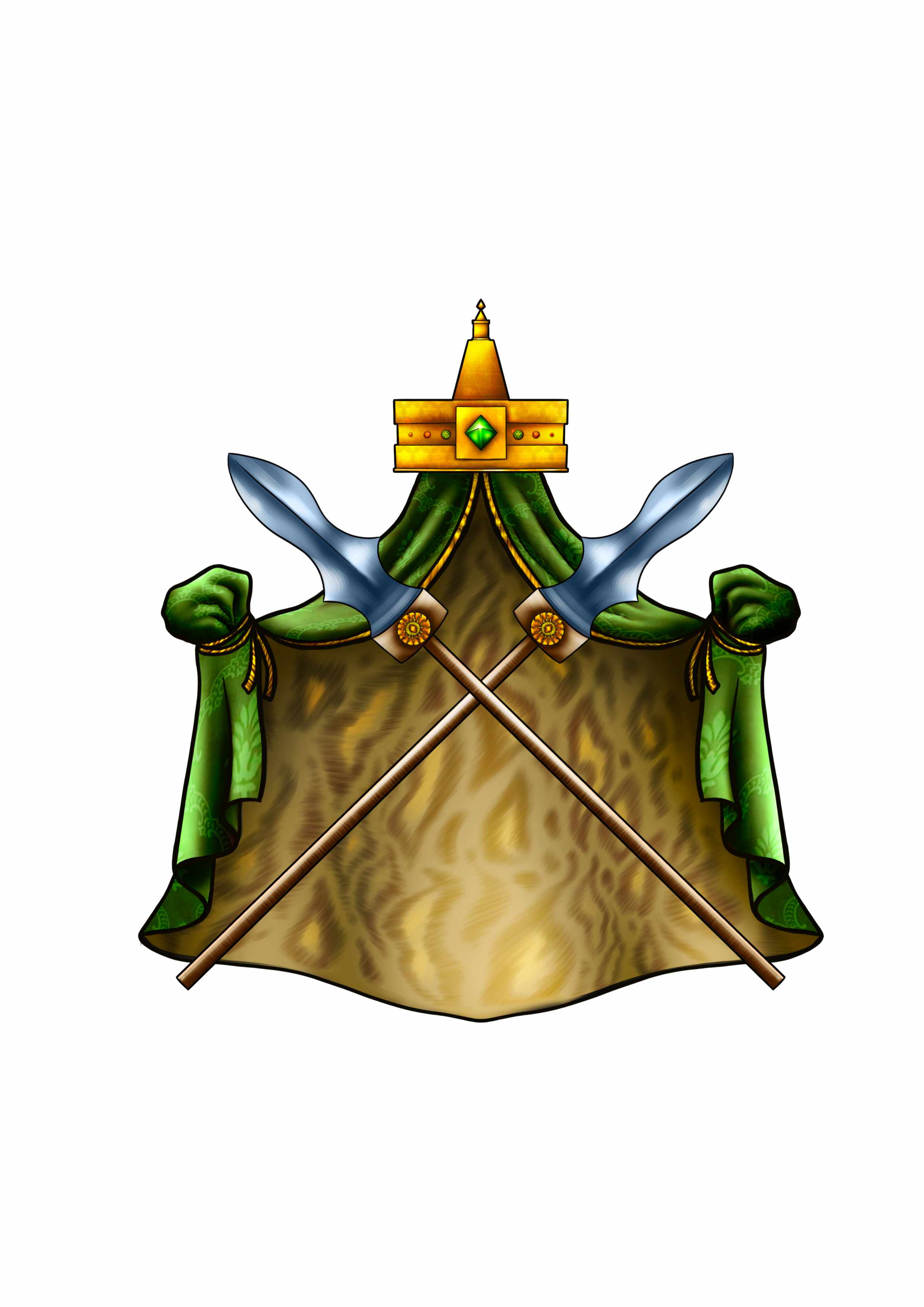"As far as we can assess the situation, numerous high representatives of the party and also of our service are involved in the coup plans."
Aleksandra had listened attentively to Shelepin's remarks about a possible coup. Rumours of this kind were heard all the time, but when the deputy head of the KGB voiced them, there had to be something to it. "We are at a turning point in Soviet history. For one direction, the new course towards the West has gone too far; for the other, it has not yet been pushed far enough. If these two extreme groups now join forces for different motives, our project is also in danger. You will work out a plan that will enable Erath to be removed from Moscow at any time. He should not come to any harm in the process; the preparations must be so inconspicuous that no more people will become aware of him. Probably there will be no problem, because all analysts assume that a coup attempt can be launched in August at the earliest. Then possible coup plotters will want to take advantage of the holiday period to carry out their coup. Of course, we will be prepared, but every coup attempt must be considered very thoroughly. Sometimes it may then be necessary, while officially fighting the insurgents, to indirectly promote their cause."
The more Aleksandra tried to give honest answers to Johann's critical questions about the internal organisation of the state, the more difficult it became for her to act covertly and to cooperate with the KGB general she was so familiar with.
But even as Shelepin continued to talk, Aleksandra was already considering plans: by ship, by train, by plane? How could one leave Moscow quickly and inconspicuously if the worst came to the worst. Ships would be by far the most inconspicuous means of transport, but their flexibility was low: Moskva up and down. Broad-gauge rail towards Helsinki or Warsaw would be the most luxurious means, but one could probably hardly book tickets in a spontaneous emergency, let alone find a safe departure. National and regional railway lines were even less safe because the government or a junta could interrupt departures without international anger. Above all, the speed factor made her choose the plane as the most sensible means. Even with roadblocks in place, it would take thirty minutes to get from the hotel to the Alexander Nevsky military airport via a few sneaky routes. From there, one could take off with any size of machine. It would also be important to mislead any pursuers. Certainly, Colonel Bogenza could be involved - without giving her too much information - because she was not only a loyal doctor, but also a reliable KGB collaborator.
Shelepin, noticing that Aleksandra's mind was wandering, flicked before her eyes. Immediately she turned her gaze back to him, "As I said, if he leaves the country on 31 July as planned, the chances of him getting involved in anything are vanishingly small, but we should be careful."
The general's words reminded Aleksandra of something she had almost forgotten: the daily encounters with Johann and the increasing familiarity that grew from them could not be allowed to obscure the fact that this mission would come to an end, and very soon, for he had already completed more than half of his stay.
Although Aleksandra kept quiet about their actual assignment, of course; and Johann deliberately didn't ask about it, they were long past working on architectural history for appearances' sake. A certain rhythm had developed: Monday, Wednesday and Friday were spent reading and discussing communist texts, Tuesday, Thursday and Saturday Catholic ones. On Sundays, excursions to places of interest were organised. This form of communal wrestling had become a kind of competition: Who would have succeeded in convincing the other of their own position in the end? With which baggage would Schelepin send Johann back to Austria or Rome?
"Aleksandra! Where are you today with your thoughts? Surely, I can count on your concentration? I am aware of the trouble it means not to have a day off. But after he leaves, you'll get ample leave for it, in the Crimea or in Klaipėda."
Aleksandra was now fully back to the task at hand: "On this point I would also like to praise the assigned translator, Comrade Shakhlikov. He does his job with great conscientiousness. And he too should be given appropriate leave, perhaps in Sotchi or in Sillamäe."
Shelepin nodded: "That can be arranged. What do you think of him privately?"
Aleksandra was puzzled by the question. Did the general now already sound like her friend Olga? Why did everyone seem to suspect that she would succumb to the undeniable charm of the carefree translator? "Comrade General, I can freely assure you that I have no interest whatsoever in a private relationship with him. Not only because he is my subordinate in this case, but because he is fundamentally not the kind of man I would consider."
Shelepin pondered this answer, "Is it because he obviously has numerous changing partners?"
Aleksandra shook her head, "I have heard rumours of this kind, but with regard to his service - and only that I judge - there has never been the slightest negligence. I also don't see any problem in such a lifestyle, possibly it is even more realistic with our work profile than a permanent relationship with a person to whom you can never guarantee that you won't be transferred to the other end of the world tomorrow. At the beginning of the mission, I clearly pointed out to the comrade that lady visitors in his hotel room must under no circumstances come into contact with our guest. Anything else would be his business. It is quite clear that one cannot impose a four-month asceticism on a man of his age and temperament. That would also be detrimental to the quality of his work."
Shelepin laughed up. "Aleksandra, Shakhlikov is as old as you are! As far as I know, you have imposed an even longer asceticism on yourself. But that really doesn't matter now. If everything goes as planned, Erath will be sent back to the West as our covert contact. He will continue to practise his world view, I was able to convince myself of that when I met him in the Ottoman embassy, but at the same time he will be able to solicit understanding for our positions. And we will give him a gift along the way, the release of all Christian clergy who are imprisoned for political reasons. This act is not a threat for us, because there will not be so many of them, but for them it will be a great success; and the bridge over which further interlocutors can approach each other. You will then be promoted to a position from which you can maintain this contact even more independently. And then the question is whether you want to take comrade Shakhlikov with you to your new position."
Aleksandra was getting tired of having incoherent chunks of the "Great Plan" thrown at her, but at the same time she didn't want to push her mentor. She could imagine how much was going through his mind. Many of the possible actions were highly risky, for his career and for the whole government. To relieve him of at least that worry, she replied, "Comrade General, you know you can always count on me. Whether Comrade Shakhlikov accompanies me to a new post should depend primarily on whether his specific qualities are required there. But either way, if you wish, I will gladly continue to work with him. And I say that not out of mere obedience, but because he is eager, faithful to the line and motivated."
Schelepin flipped the folder in front of him shut and stood up, "That's fine. Possibly you will have a very long time to deal with each other." He turned to go, "And one more thing: after your next promotion, you will move to a bigger flat, permanently. If not for your sake, for mine, because this closet entrance is downright ridiculous!" After saying this, he went into the bedroom and left Aleksandra's flat through the wardrobe as usual.







